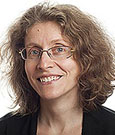
Anna Kreshuk
EMBL Heidelberg
Germany
EMBL Course
EMBL is committed to sharing research advances and sustaining scientific interaction throughout the coronavirus pandemic. We are delighted to announce that the course is going virtual and invite you to join us online.
The advent of deep learning has brought a revolution in the field of computer vision, including most tasks and research questions concerned with microscopy image analysis. Neural networks have been successfully used for image restoration, classification and segmentation, for the detection of objects and characterisation of their morphology, for high-throughput imaging and large-scale processing in 3D. Despite these advances, training and deployment of such neural networks remains difficult for practitioners of image analysis. The aim of our course is to close this gap and teach the participants – in the most hands-on way possible – to apply deep learning-based methods to their own data and image analysis problems.
This is a blended learning course. We will begin with 3 pre-course sessions (on Friday 18 Dec 2020, Friday 15 January 2021 and Friday 29 January 2021) which will bring everyone to a good starting position for a week-long intensive virtual course in February 2021. The 3 pre-course sessions will have associated homework. The week-long course in February 2021 will include a few talks, but will mostly be devoted to hands-on work on real data, in small groups of 3-4 participants.
This course is aimed at both core facility staff and research scientists.
Prerequisites for this workshop are programming skills in Python and ideally Tensorflow, Keras or Pytorch as well as basic knowledge of machine learning theory. Participants should provide an outline of one image analysis task they would like to work on during the course. Ideally, you will provide annotated images for network training during the course.
After this course you should be able to:

EMBL Heidelberg
Germany
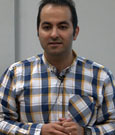
University of Angers and ESAIP, École Supérieure Angevine en Informatique
France

University of Angers
France
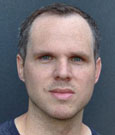
Independent researcher
Germany

École Polytechnique Fédérale de Lausanne (EPFL)
Switzerland
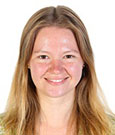
EMBL Heidelberg
Germany

ETH Zürich
Switzerland

INSA Lyon
France
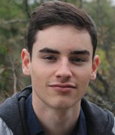
University of Angers
France
University of Angers
France
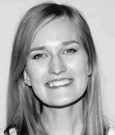
ETH Zürich
Switzerland
and Tooploox
Poland

ETH Zürich
Switzerland

University of Wroclaw and Tooploox
Poland
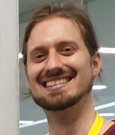
EMBL Heidelberg
Germany

ETH Zürich
Switzerland
and Tooploox
Poland

Course and Conference Manager
EMBL Heidelberg
Germany
Got something to say? Tweet it with #EMBLDeepLearning
| Time | Speaker |
|---|---|
| 12:50 – 13:30 (CET) 06:50 – 07:30 (EDT) | Welcome and introductions (organisers & instructors)Anna Kreshuk – EMBL Heidelberg, Germany Valentyna Zinchenko – EMBL Heidelberg, Germany Elisabeth Zielonka – EMBL Heidelberg, Germany Tim Nürnberger – EMBL Heidelberg, Germany Maryann Heck – EMBL Heidelberg, Germany Irena Provaznikova – EMBL Heidelberg, Germany |
| 13:30 – 14:15 (CET) 07:30 – 08:15 (EDT) | Interactive session: Flash talks from participants (2 slides / 2 min about yourself & your work) |
| 14:15 – 14:30 (CET) 08:15 – 08:30 (EDT) | Break |
| 14:30 – 15:15 (CET) 08:30 – 09:15 (EDT) | Live talk followed by Q&A session (35 min talk plus 10 min Q&A): Segmentation Anna Kreshuk – EMBL Heidelberg, Germany |
| 15:15 – 15:30 (CET) 09:15 – 09:30 (EDT) | Break |
| 15:30 – 16:00 (CET) 09:30 – 10:00 (EDT) | Introduction to practicals by instructors in Zoom breakout rooms |
| 16:00 – 18:00 (CET) 10:00 – 12:00 (EDT) | Practicals in small groups |
| 18:00 – 18:30 (CET) 12:00 – 12:30 (EDT) | Meet the instructors in Zoom breakout rooms |
| 18:30 (CET) 12:30 (EDT) | End of Day 1 – Continued access to networking and discussion platform, pre-recorded lectures and course materials on eCampus |
| Time | Speaker |
|---|---|
| 12:50 – 13:00 (CET) 06:50 – 07:00 (EDT) | Overview of the day |
| 13:00 – 13:45 (CET) 07:00 – 07:45 (EDT) | Live talk followed by Q&A session (35 min talk plus 10 min Q&A)Image Restoration and Nuclei Detection Martin Weigert – École Polytechnique Fédérale de Lausanne (EPFL), SwitzerlandUwe Schmidt – Independent researcher, Germany |
| 13:45 – 14:15 (CET) 07:45 – 08:15 (EDT) | Virtual Social Programme: Online Pictionary |
| 14:15 – 14:30 (CET) 08:15 – 08:30 (EDT) | Break |
| 14:30 – 14:40 (CET) 08:30 – 08:40 (EDT) | Group briefings with instructors in Zoom breakout rooms |
| 14:40 – 16:00 (CET) 08:40 – 10:00 (EDT) | Practicals in small groups |
| 16:00 – 16:30 (CET) 10:00 – 10:30 (EDT) | Meet the instructors in Zoom breakout rooms |
| 16:30 – 18:00 (CET) 10:30 – 12:00 (EDT) | Practicals in small groups (continued) |
| 18:00 – 18:30 (CET) 12:00 – 12:30 (EDT) | Meet the instructors in Zoom break out rooms |
| 18:30 (CET) 12:30 (EDT) | End of Day 2 – Continued access to networking and discussion platform, pre-recorded lectures and course materials on eCampus |
| Time | Speaker |
|---|---|
| 12:50 – 13:00 (CET) 06:50 – 07:00 (EDT) | Overview of the day |
| 13:00 – 13:45 (CET) 07:00 – 07:45 (EDT) | Live talk followed by Q&A session (35 min talk plus 10 min Q&A) Data augmentation strategies David Rousseau – University of Angers, France |
| 13:45 – 14:15 (CET) 07:45 – 08:15 (EDT) | Virtual Social Programme: Pub Quiz |
| 14:15 – 14:30 (CET) 08:15 – 08:30 (EDT) | Break |
| 14:30 – 14:40 (CET) 08:30 – 08:40 (EDT) | Group briefings with instructors in Zoom breakout rooms |
| 14:40 – 16:00 (CET) 08:40 – 10:00 (EDT) | Practicals in small groups |
| 16:00 – 16:30 (CET) 10:00 – 10:30 (EDT) | Meet the instructors in Zoom breakout rooms |
| 16:30 – 18:00 (CET) 10:30 – 12:00 (EDT) | Practicals in small groups (continued) |
| 18:00 – 18:30 (CET) 12:00 – 12:30 (EDT) | Meet the instructors in Zoom breakout rooms |
| 18:30 (CET) 12:30 (EDT) | End of Day 3 – Continued access to networking and discussion platform, pre-recorded lectures and course materials on eCampus |
| Time | Speaker |
|---|---|
| 12:50 – 13:00 (CET) 06:50 – 07:00 (EDT) | Overview of the day and group photo |
| 13:00 – 13:20 (CET) 07:00 – 07:20 (EDT) | Live talk followed by Q&A session (15 min talk plus 5 min Q&A): Image classification Valentyna Zinchenko – EMBL Heidelberg, Germany |
| 13:20 – 13:25 (CET) 07:20 – 07:25 (EDT) | Break (to switch to next live talk) |
| 13:25 – 13:45 (CET) 07:25 – 07:45 (EDT) | Real use case presentation: Classification (15 min talk plus 5 min Q&A) David Rousseau – University of Angers, France |
| 13:45 – 13:50 (CET) 07:45 – 07:50 (EDT) | Break (to switch to next live talk) |
| 13:50 – 14:10 (CET) 07:50 – 08:10 (EDT) | Real use case presentation: Segmentation (15 min talk plus 5 min Q&A) David Rousseau – University of Angers, France |
| 14:10 – 14:30 (CET) 08:10 – 08:30 (EDT) | Break |
| 14:30 – 14:40 (CET) 08:30 – 08:40 (EDT) | Group briefings with instructors in Zoom breakout rooms |
| 14:40 – 16:00 (CET) 08:40 – 10:00 (EDT) | Practicals in small groups |
| 16:00 – 16:30 (CET) 10:00 – 10:30 (EDT) | Meet the instructors in Zoom breakout rooms |
| 16:30 – 18:00 (CET) 10:30 – 12:00 (EDT) | Practicals in small groups (continued) |
| 18:00 – 18:30 (CET) 12:00 – 12:30 (EDT) | Meet the instructors in Zoom breakout rooms |
| 18:30 (CET) 12:30 (EDT) | End of Day 4 – Continued access to networking and discussion platform, pre-recorded lectures and course materials on eCampus |
| Time | Speaker |
|---|---|
| 12:50 – 13:00 (CET) 06:50 – 07:00 (EDT) | Overview of the day |
| 13:00 – 15:00 (CET) 07:00 – 09:00 (EDT) | Group activity: Finish practicals, preparation of presentations |
| 15:00 – 15:10 (CET) 09:00 – 09:10 (EDT) | Break |
| 15:10 – 16:20 (CET) 09:10 – 10:20 (EDT) | Group activity: Group presentations (Groups 1-3: What worked, what didn’t, what could be done next? (20 min per group) |
| 16:20 – 16:30 (CET) 10:20 – 10:30 (EDT) | Break |
| 16:30 – 17:40 (CET) 10:30 – 11:40 (EDT) | Group activity: Group presentations (Groups 4-6: What worked, what didn’t, what could be done next? (20 min per group) |
| 17:40 – 17:50 (CET) 11:40 – 11:50 (EDT) | Break |
| 17:50 – 18:30 (CET) 11:50 – 12:30 (EDT) | Interactive: Discussion & Wrap-up |
| 18:30 (CET) 12:30 (EDT) | End of the course – Continued access to networking and discussion platform, pre-recorded lectures and course materials on eCampus for two weeks |
Got something to say? Tweet it with #XXX
| Time | Session |
|---|---|
| 10:45-11:00 | Opening remarks |
| 11:00-11:15 | Session |
| 11:15-11:45 | Invited speaker |
| 11:45-12:15 | Invited speaker |
| 12:15-12:30 | Selected short talk |
| 12:30-12:45 | Selected short talk |
| 12:30-14:00 | Lunch |
| 14:00-14:15 | Selected short talk |
| 14:15-14:30 | Selected short talk |
| 14:30-14:45 | Selected short talk |
| 14:45-15:00 | Selected short talk (Virtual) |
| 15:00-15:15 | Coffee Break |
| 00:00-00:00 | Session |
| 15:15-15:45 | Invited speaker |
| 15:45-16:15 | Invited speaker |
| 16:15-16:30 | Selected short talk |
| 16:30-16:45 | Selected short talk |
| Time | Session |
|---|---|
| 10:45-11:00 | Opening remarks |
| 11:00-11:15 | Session |
| 11:15-11:45 | Invited speaker |
| 11:45-12:15 | Invited speaker |
| 12:15-12:30 | Selected short talk |
| 12:30-12:45 | Selected short talk |
| 12:30-14:00 | Lunch |
| 14:00-14:15 | Selected short talk |
| 14:15-14:30 | Selected short talk |
| 14:30-14:45 | Selected short talk |
| 14:45-15:00 | Selected short talk (Virtual) |
| 15:00-15:15 | Coffee Break |
| 00:00-00:00 | Session |
| 15:15-15:45 | Invited speaker |
| 15:45-16:15 | Invited speaker |
| 16:15-16:30 | Selected short talk |
| 16:30-16:45 | Selected short talk |
Application is no longer possible. The course was limited to 18 participants.
The results will be announced approximately 2 weeks after the application deadline.
Registration Fees (included admission, course materials and access to computational resources):
| Academia | 295 Euro |
| PhD Student | 295 Euro |
| Industry | 520 Euro |
Interested to find more about our upcoming courses? Sign up for our events newsletter.
Follow us on Twitter @EMBLEvents or visit our Facebook page to stay up to date with all of our events!
Registration Fee Waivers
All academic and student registrants are invited to apply for a registration fee waiver, provided by the EMBL Advanced Training Centre Corporate Partnership Programme and EMBO. The registration fee waiver covers the registration sum that you have paid to attend the meeting. Conference participants are not required to pre-pay the registration fee to be selected for a fee waiver for a virtual meeting. If you have already paid the registration fee and are awarded a fee waiver, it will be reimbursed after the meeting. Course participants are required to pay the course fee in advance, which will then be reimbursed after the recipient has attended the course.
For participants and speakers with childcare responsibilities there is the possibility to apply for a grant, provided by the EMBL Advanced Training Centre Corporate Partnership Programme and EMBO, to offset childcare costs incurred when participating at a virtual event. Eligible costs include fees for a babysitter or childcare facility or travel costs for a care giver. Please note that priority will be given to early stage researchers. Costs will be reimbursed after the meeting only once a reimbursement form and original receipts have been received. In order to apply for this grant, you must be registered by the abstract submission deadline.
Applies to selected courses only. Availability will be indicated during the abstract or motivation letter submission process.
This grant covers costs related to your attendance to the course (registration, travel and accommodation costs). The grant is restricted to PhD students and postdocs who conduct basic biomedical research.
Whether you are eligible to apply for a travel grant, depends on when you received your university entrance qualification (e.g. Abitur, A-Levels, High School Diploma, Final State Examination):
– for PhD and MD students, as well as graduates, the university entrance qualification must not have been obtained more than 11 years ago at the time of the envisaged course
– for postdocs, the university entrance qualification must not have been obtained more than 13 years ago at the time of the envisaged course
Applications for financial assistance can be submitted via the submission portal* (for the submission of abstracts for conferences or the submission of motivation letters for courses) by completing the Financial Assistance Application Section (underneath the section for entering abstract/motivation letter information). The link to the portal can be found in the registration confirmation email that you will receive after registering for the conference or course.
For conferences, if you are not submitting an abstract, you can still apply for financial assistance in the submission portal by following the instructions here. Note that priority will be given to those submitting an abstract to present at the conference. In your application you will be asked to answer questions regarding your motivation for applying, and, for registration fee waivers, the reasons why your lab cannot fund your attendance and how your attendance will make a difference to your career. Application for financial support will not affect the outcome of your registration application.
*For some events, applications for Childcare Grants will still be done by email. Information about the grant will be sent out shortly after the abstract/motivation letter deadline. Please contact the event Conference Officer if you have any questions.
The scientific organisers will select the recipients of registration fee waivers during the abstract selection process for conferences and the participant selection process for courses. Results will be announced approximately 3 – 4 weeks before the event start date. Selection results do not impact your admission to the meeting. Registration fee waiver selection is based on your current work or study location, your motivation for applying, the reasons for needing financial support and the impact this event will have on your career. Childcare grants are allocated based on career stage, with priority given to early stage researchers.
A list of external funding opportunities can be found here, and information on attending a conference as an event reporter here.
For further information about financial assistance please refer to the FAQ page.
Below you will find the software and technical requirements for this course.
Participants are asked to use a laptop with a Mac, Linux, or Windows operating system (not a tablet, Chromebook, etc.) and to install a few specific software packages. You will need admin rights to be able to install the software on your computer and we recommend you try this before the course. If you do not have admin rights, please contact your technical support team in advance to make sure the software can be installed.
A classroom application like Zoom will be used for the live talks and Q&A sessions. More information will be provided closer to the start of the course.
While using the software during the course, please make sure you have nothing else using your bandwidth. We recommend using a wired connection.
Sponsorship Opportunities
We offer a variety of event sponsoring possibilities, with the flexibility to select a set sponsorship package or combine individual sponsorship options to suit your event budget. Discounts are available for companies sponsoring multiple events at EMBL Heidelberg. View other conferences, or contact sponsorship@embl.de for further information.
If you are interested in becoming a media partner of this event, please visit our media partnerships webpage.